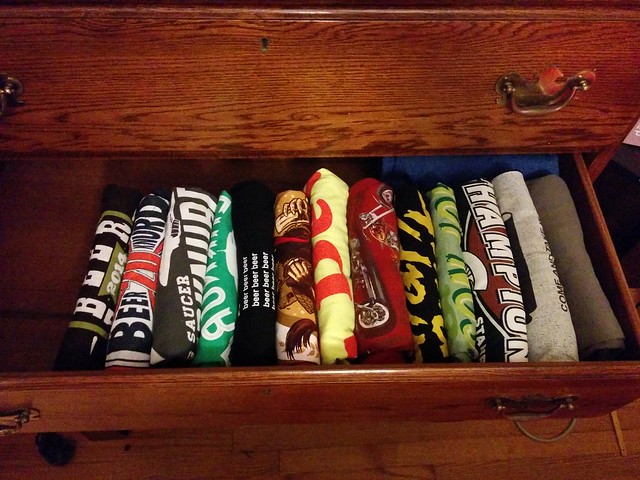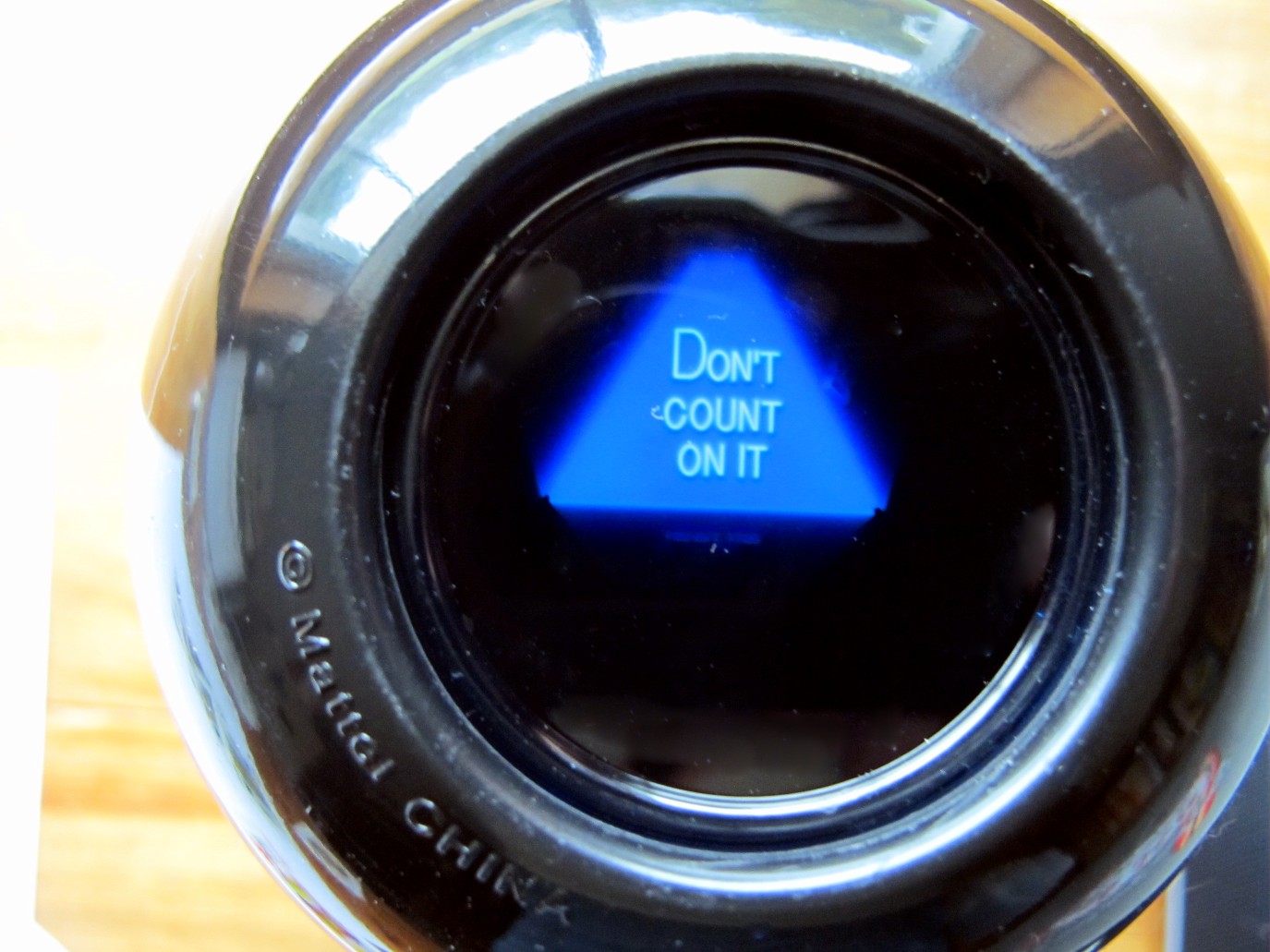 A few years ago I wrote about Marie Kondō’s book Spark Joy, which was a follow-up to The Life-Changing Magic of Tidying Up. The “KonMari” method simply invites you to hold a possession you have and ask yourself whether or not it sparks joy. If it does, you keep it. If it doesn’t you discard it. Ignatian spirituality often asks us that question about whether something—a decision or a possession, for example—gives us joy, or is life-giving. It’s a question that helps us sort through the various gifts of our lives. At the end of the day, Marie Kondō is inviting us to Ignatian detachment.
A few years ago I wrote about Marie Kondō’s book Spark Joy, which was a follow-up to The Life-Changing Magic of Tidying Up. The “KonMari” method simply invites you to hold a possession you have and ask yourself whether or not it sparks joy. If it does, you keep it. If it doesn’t you discard it. Ignatian spirituality often asks us that question about whether something—a decision or a possession, for example—gives us joy, or is life-giving. It’s a question that helps us sort through the various gifts of our lives. At the end of the day, Marie Kondō is inviting us to Ignatian detachment.
Ignatius writes:
For this it is necessary to make ourselves indifferent to all created things as much as we are able, so that we do not necessarily want health rather than sickness, riches rather than poverty, honor rather than dishonor, a long rather than a short life, and so in all the rest, so that we ultimately desire and choose only what is most conducive for us to the end for which God created us.[1]
This “indifference” is what we would call “holding ourselves in balance” before the gifts in our life. Can I hold my money, my power, my possessions, my health, lightly? Or am I clinging to them? David Fleming, SJ says, “if we abuse any of these gifts of creation or, on the contrary, take them as the center of our lives, we break our relationship with God and hinder our growth as loving persons.” The purpose of the gifts is to grow as persons and as friends of God, which a sense of peace and joy generally indicate. If something does not help me grow in my relationship with God or into my best self, which often comes with a lack of peace and joy, then I should let it go.
So when Marie Kondō speaks about decluttering your physical life – letting go of clothes or books or old Christmas decorations that no longer give you joy – she’s onto something. Many of us can take this same practice and apply it to our spiritual and emotional life. If you find yourself talking about “emotional baggage” then it might be worth opening up that baggage and seeing what needs to be discarded. What relationships, spiritual practices, vocational paths, social groups, or images of God do you need to thank and part with?
Kondō always says not to forget the step of thanking the possession for serving its use before parting with it. To everything there is a season, right? Some things have served their use and we move into a new season of our lives. For me, leaving the Jesuits was not something to feel bad about, but was rather a period in my life that made me a better husband, father, and minister. I was grateful for that time and needed to thank God for it. Even periods of sin can bring forth grace, and gratitude for growth. As Paul wrote, “where sin increased, grace overflowed all the more” (Romans 5:20, NABRE). Periods of suffering and desolation may reveal certain gifts.
If we’re going to KonMari our spiritual life we need to tweak Marie Kondō’s six steps:
1 Commit
Perhaps we don’t need to tweak her first step at all: “Commit yourself to tidying up.” Decluttering your spiritual life is a process and will take some emotional energy, and time. You need to commit to the investment it will take. I would highly encourage a spiritual director or a soul friend to accompany you on this journey. You’ll also want to keep a journal of your notes and progress. The result going to be less visible than a less cluttered bookshelf.
2 Imagine
Kondō says to “Imagine your ideal lifestyle.” St. Ignatius invites us to use our imagination to engage with our life with God. Here you’re going to imagine what your spiritual life might look like. Write it in your journal. Perhaps you envision praying more regularly, catching up with those meaningful friendships you put on the back burner, getting more involved in church, or reading a spiritual book. This could take a narrative form or a list. Even include the kind of person you want to be or the kinds of values you want to cherish. Remember, this is an ideal. It doesn’t mean you’re going to be perfect at it. Nor should you beat yourself up about it. The goal of this all is to deepen your relationship with God, live into your best self, and strip away those things that are inhibiting that. I love the quote from the book If God Is Love that says salvation is “being freed of every obstacle to intimacy with God.” What would your life look like without those obstacles?
3 Discard
Here’s the most difficult work. With physical possessions, say shirts, Marie Kondō has you put them all together in one place, like on your bed. You see all the stuff together. Then you hold each item and ask whether it sparks joy. In our spiritual project you can make a list in your journal of all the things that are important in someway to you in your life: your friends, career, church, volunteer work, writing, your brewing hobby, reading, TV watching, travel, that politics podcast you listen to, eating out, spending time with family, your Bible study group… Remember, these are all the things which may be giving you life or sucking the life from you. You’ll sort through that all later. Just make a list of all the things that have taken a place of importance in your life. You may find that it’s a lot of stuff!
Now that you’ve put everything in a metaphorical pile, prayerfully look over the list. Ask yourself if your volunteer work sparks joy. Perhaps you find that you’ve taken on too much and it’s draining the joy from you. Has it turned into a kind of spiritual or emotional clutter? Can you let go of something? Maybe you think about how much joy you get out of your Bible study – put it in the “keep” pile! You may even decide to attend more frequently. And then maybe that politics podcast you listen to just stokes negativity in you rather than joy. That may be a sign that it’s time to thank it for the purpose it served and wish it well as you place it in the “discard” pile.
This process is act after act of discernment. What do I need to let go of because it does not help me grow in faith, hope, love, peace, and joy? What do I need to un-cling from because it does not help me move toward that ideal life I imagined? What has become an obstacle to intimacy with God?
4 Tidy
After the discarding, the KonMari method has you tidy all the “keeps” by category. Instead of clothing, books, and papers, you’re tidying generally intangible things. You should now have a list of things that are important to you and give you joy because they will help you flourish as a person of God. You may even be able to expand some of these into additional items that fit into these four categories:
| Dispositions | Relationships | Vocational | Practices |
| Things here have to do with values or dispositions you wish to have, like being more mindful, kind, empathetic, patient, gentle, supportive, etc. | Anything that fosters healthy relationships like a book study, having a date night, catching up with a friend you haven’t talked to in a year, meeting new people at church, or saying hello to a stranger. | Having to do with career, job, hobbies, or learning new skills. | Action-related things like a prayer practice, drinking more tea, pausing to think before speaking up in a meeting, listening to a certain kind of music, volunteering. |

Used under Creative Commons License – www.flickr.com/photos/dave77459/23871815583/
By placing the items on your list into these four categories you’re beginning to get a picture of a less cluttered spiritual life. Ask yourself, Is this too much? Am I just adding things for the sake of adding things? You may want to limit how many items are in each list. I find that for a time focusing on one or two items in each category is plenty, otherwise I can fall into the trap of overwhelm and beating myself up for not “achieving”.
5 Order
Marie Kondō says to “follow the right order” in your tidying physical items because certain items are easier to let go of than others, so she puts the easier things first. We’re not dealing with clothing or kitchen items, we’re dealing with things of the heart so it’s naturally going to be harder in some ways to shift the way we’ve been in our spiritual life. The order of tidying into categories is intentional, beginning with those things that are most important, not always the easiest. Of course all of these categories are important, but focusing our priorities is good.
Dispositions and values are about the kind of person you want to be. I might have put relationships first, but I put dispositions first because the kind of person you want to be will greatly affect what you do to foster your relationships. We want certain values and ways of being to be foundational to this whole life project. Relationships include your relationship with God. Of course, if you foster your human relationships, your relationship with God will be affected as well. Sometimes we put our vocational priorities and various individual practices far before relationships that important relationships break down. Vocational concerns are important to who you are and what give your life meaning. They should not take over your life to the detriment of your relationships, but we should be thoughtful about them. What are your gifts? How can you use them to bring goodness to others? Finally, your practices are going to be determined largely by the previous three categories. There is going to be some overlap between categories and that’s fine. Each of these areas will affect the others in some way. And you may find another category that’s helpful for you. The categories are just a way of getting a holistic and interdependent picture of a decluttered spiritual life.
 6 Joy
6 Joy
The last step is, “Ask yourself if it sparks joy.” Now these rules are usually followed one category at a time with physical items: clothing, books, papers, and miscellaneous. But we’re applying them a bit differently. This step is a reminder to be focused on that initial question: Do the various elements of my spiritual life give me joy and peace? You’ll want to revisit this process in the future if you begin sensing your answer to this question changes. You may be moving into a new season in your life or certain things have come to their own “fullness of time” and must be departed from.
Ignatius was not about forcing a particular prayer method, for example. Use what works is the mantra with Ignatian prayer practices. For a time imaginative prayer was what worked well for me. I could visualise a scene from scripture so vividly and it gave me so much grace. Over time that faded and I discovered new forms of prayer that helped me feel more connected with God. That’s okay. We simply need to be attentive and listen.
These steps are just an intentional way of listening to the movement of God, what you’re being drawn to and what you’re being invited to let go of. It keeps us indifferent and holding things lightly.
Related posts:
[1] St. Ignatius of Loyola, “Principle and Foundation,” Spiritual Exercises, annotation 23.
Listen to the podcast version of this post…









My good(God)Ness what an amazing post. This detachment is also what I aim for and as you say it’s a series of choices of discrimination one after the other. Thanks for this. I’m going to reread it slowly. Anita.
Like Anita, I’ve read and re-read and listened to the podcast twice… so much to digest, but oh my! What a gold mine!! Thank you Andy!
Amazing post 👏😍
Wonderful post. So much to absorb. Thanks Andy 😊